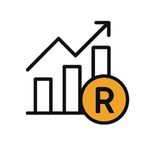
Planning for retirement is often delayed or overlooked entirely, yet the consequences of not saving can be severe, especially in South Africa where state support is limited. Without personal savings, many retirees face financial hardship, dependency on minimal government grants, and the real possibility of working far beyond retirement age.
Key Takeaways
- Relying on the State Is Not Enough: Without personal retirement savings, many South Africans are left depending solely on the SASSA old age grant, which is too low to sustain a comfortable lifestyle after retirement.
- The Earlier You Start, the Less You Need to Save Each Month: Starting retirement savings early allows your money to grow through compound interest, significantly reducing the amount you need to contribute later on.
- Delaying or Skipping Savings Has Long-Term Consequences: Those who fail to save often face limited access to annuities, increased financial stress, prolonged working years, and exposure to risks like inflation and market volatility.
About Arcadia Finance
Get the loan you need with ease through Arcadia Finance. Compare 19 NCR-approved lenders, pay no application fees, and enjoy a smooth, secure process tailored to your finances.
Retirement Expectations and Planning in South Africa
Save. Then save some more. This message has been repeated in nearly every piece of financial advice you have ever come across. But how can you actually tell when you have saved enough? Is there a definitive point at which you can say, “This will do”? Below is a breakdown of realistic figures to aim for at various stages of life, intended to guide South Africans who want to retire comfortably.
Retirement Expectations in South Africa
In South Africa, it is generally assumed that the average person enters the workforce at the age of 25 and continues working for approximately 40 years, reaching the retirement milestone at age 65. This is the standard model. In reality, a growing number of South Africans are required to keep working beyond 65 due to financial constraints. Still, this basic model is useful as a starting point to estimate how much one should ideally have saved to retire with a degree of financial security.
Baseline Assumptions for Retirement Planning
To calculate how much you should save for retirement, the following assumptions are used:
- Starting monthly salary at age 25: R15 000
- Annual salary growth: Begins at 6% in your 20s, increasing to 25% in your 50s. These figures do not include exceptional increases such as major promotions or job changes.
- Target retirement age: 65
- Safe monthly withdrawal rate in retirement: 4% of your total savings
- Required total retirement savings (nest egg): R7.5 million
- Expected annual return on investments before retirement: 8% (this includes investments in pension funds, retirement annuities, and similar products)
- Expected annual return on investments during retirement: 5%
- Inflation rate: 5% per year
This structure is designed to reflect a stable financial approach for someone who saves and invests regularly over a full working career. The 4% withdrawal rule means that a person retiring with R7.5 million in savings could withdraw roughly R25 000 per month, which adjusts for inflation over time, while aiming to avoid depleting the capital too quickly.

What Are the Common Financial Risks Facing South African Retirees Today?
Longer Life Expectancy Increases Financial Pressure
South Africans are generally living longer than in previous generations. This extends the number of years you may need to rely on your retirement savings. As a result, you may need to put aside more money during your working years or structure your retirement income to last for a longer period than originally planned.
Inflation Continues to Weaken the Rand’s Buying Power
Over the past two decades, South Africa’s Consumer Price Index (CPI) has exceeded 5 percent in more than half of the years. This steady inflation rate means that the purchasing power of your retirement funds has been consistently declining. Unless your income keeps pace with this trend, your money will not stretch as far in future years. The weakening of the rand is expected to persist, creating ongoing pressure on fixed or limited incomes.
Increased Market Volatility Poses a Risk to Retirement Income
Market fluctuations have become more frequent and severe, particularly on the Johannesburg Stock Exchange (JSE) and in international markets. These changes are often accompanied by instability in the exchange rate, inflation levels, and interest rates. This volatility makes it harder to predict the performance of retirement investments and can affect the consistency of your income. A major concern is that even during market downturns, your financial needs do not pause. This might require you to sell investments during poor conditions, locking in losses and reducing the size of your portfolio.
Behavioural Habits and Poor Planning Undermine Retirement Security
Insights from retirement behaviour studies show that many individuals fail to account for the long-term impact of their financial habits. A common issue is spending more than what is earned during one’s working years, which results in inadequate savings. This lack of preparation can leave significant shortfalls in retirement, making it difficult to maintain your standard of living without financial stress.
Immediate Consequences of Not Saving for Retirement
Limited Access to Annuities or Lump Sum Benefits
Without retirement savings, many South Africans will have no access to annuities or lump sum payouts at retirement. These benefits are usually available through employer pension funds or personal retirement annuities. If you have not contributed to such products during your working years, there will be no accumulated funds to support you. This leaves you without a structured income in retirement and fully reliant on external support.
Reliance on the State Old Age Grant
For those without savings, the SASSA old age grant often becomes the only source of income. As of 2025, the maximum monthly amount is R2 310 for people aged 60 to 74, and R2 330 for those over 75. This grant is meant to cover basic needs such as food, utilities, and transport. It is not designed to support a comfortable retirement and often falls short of meeting all essential expenses.
Debt Trap and No Room to Save
A lack of retirement savings is frequently linked to ongoing debt. Many South Africans spend much of their income repaying loans, leaving little room to save. As debt takes priority, long-term planning is often neglected. By retirement age, those caught in this cycle may have no savings and still face financial obligations, forcing them to continue working or rely on limited state support.

Ways To Improve Your Financial Position

Start Without Delay
Beginning your savings journey as early as possible gives you the benefit of time, which allows your money to grow through compound interest. This means earning interest on both your original contributions and on the interest already earned. Putting off saving in favour of spending now will either increase the amount you need to put away in future or delay the age at which you can realistically retire.
Think of retirement saving like planting a tree. While the ideal time to begin was many years ago, the next best time is right now.

Increase Your Monthly Contributions
Starting late means you will need to contribute a larger amount each month than someone who began earlier.
Take this scenario as an example:
If you wish to accumulate R300 000 over a 10-year period and start immediately, you could reach this target by saving R1 500 each month, assuming a return of 10% per year with consistent contributions. However, if you wait two years before getting started, your monthly contribution will need to increase by approximately 40%, or an extra R600, to reach the same goal in time. If you wait five years, you would need to put away roughly R3 900 per month, more than twice what would have been required if you had begun straight away.
When applying this idea to retirement planning, work backwards from the amount you will need by your intended retirement date. Determine how much you must save monthly to reach that figure. If the amount is unaffordable, you may need to extend your timeline or aim for higher returns by selecting growth-focused investments.

Consider Delaying Retirement
Postponing retirement and remaining in the workforce allows you more years to build up your retirement savings. This approach also reduces the number of years you will be relying on those savings. Although not ideal for everyone, working longer can have a meaningful effect on your financial stability during retirement.

Put Extra Income Towards Your Retirement Fund
When receiving unexpected income such as a bonus or salary increase, consider allocating part of it to your retirement savings. You could either divide each windfall or alternate between using it to improve your current lifestyle and boosting your retirement fund.

Select Suitable Financial Products
Take the time to evaluate different savings and investment options carefully before choosing. Compare the costs and features of retirement products from various providers. Pay close attention to fees and exit penalties, and choose a provider that allows you to withdraw or move your investment without additional charges.
Beyond a standard retirement fund, you might also look into tax-free savings accounts or unit trusts. These provide greater flexibility and more accessible investment options.


Avoid Being Too Cautious
If you begin saving later in life, being overly cautious may hinder your ability to build sufficient retirement funds. Historically, shares have produced stronger long-term returns than asset classes like bonds or cash. Although share prices can fluctuate in the short term, they tend to provide more stable growth over longer periods.
Choosing the right mix of asset classes can be complicated. Many investors benefit from handing this decision over to a professional by selecting an asset allocation fund, such as a balanced fund. These funds are managed by professionals who decide on the appropriate mix of equities, bonds, cash and property based on market conditions.

Stay Rational With Your Investment Decisions
Data shows that investors often earn lower returns than the actual performance of the funds they are invested in. This is largely due to poor timing decisions, such as selling during downturns or chasing performance during rallies.
Successful investing depends not just on selecting the right funds, but also on maintaining sensible behaviour. Markets do not move in a straight line. Reacting emotionally to short-term losses can result in missing out on later gains.
When your personal situation changes or your appetite for risk shifts, this should prompt a review of your overall investment strategy. Market fluctuations alone should not dictate your decisions.

Adjust Your Lifestyle To Lower Retirement Income Needs
If you are concerned that you may not be able to maintain your desired lifestyle in retirement, consider revisiting your priorities. Making some adjustments to your expectations or spending habits can ease the pressure on your retirement savings. While making changes may seem difficult during your working years, your perspective may shift once you stop earning a regular salary.

Seek Professional Financial Guidance
If you are unsure about how much you need to save, how to fit savings into a tight budget, or which financial products are most appropriate for your goals, it is worth consulting a qualified and independent financial adviser. A professional adviser can help you build a workable plan tailored to your specific situation.
Conclusion
Failing to save for retirement in South Africa can lead to serious long-term consequences, including financial hardship, reliance on minimal state grants, and an inability to maintain your standard of living. As life expectancy increases and inflation continues to erode purchasing power, the need for a reliable retirement strategy becomes more urgent. Starting early, contributing consistently, and selecting appropriate investment vehicles can significantly improve your financial position later in life. While it may be tempting to prioritise present-day spending, delaying retirement planning only increases the pressure in future. With proper guidance and disciplined saving habits, it is possible to build a stable and secure retirement, even if you begin later than planned.
Frequently Asked Questions
A commonly used benchmark is to accumulate savings that allow you to withdraw 4% annually in retirement. Based on this rule, a nest egg of R7.5 million would allow for a monthly income of around R25 000. However, your actual goal should reflect your lifestyle, expected expenses, and retirement age.
The SASSA old age grant provides a basic income of up to R2 330 per month, which may not be enough to cover all living expenses. Relying solely on the grant could lead to a reduced standard of living and financial dependence on others.
While starting earlier is ideal, it is still possible to build meaningful savings later in life. You may need to contribute more each month, work longer, or adjust your retirement expectations. Starting now is still better than delaying further.
The main risks include inflation, market volatility, living longer than expected, and poor financial decisions. These factors can erode your savings over time or result in inconsistent income if not managed properly.
Yes, but it requires strong financial discipline. You can use retirement annuities, unit trusts, tax-free savings accounts, or other investment products to build your own retirement plan. However, without a pension or structured savings, you must manage your investments carefully and start as soon as possible.
Fast, uncomplicated, and trustworthy loan comparisons
At Arcadia Finance, you can compare loan offers from multiple lenders with no obligation and free of charge. Get a clear overview of your options and choose the best deal for you.
Fill out our form today to easily compare interest rates from 19 banks and find the right loan for you.

